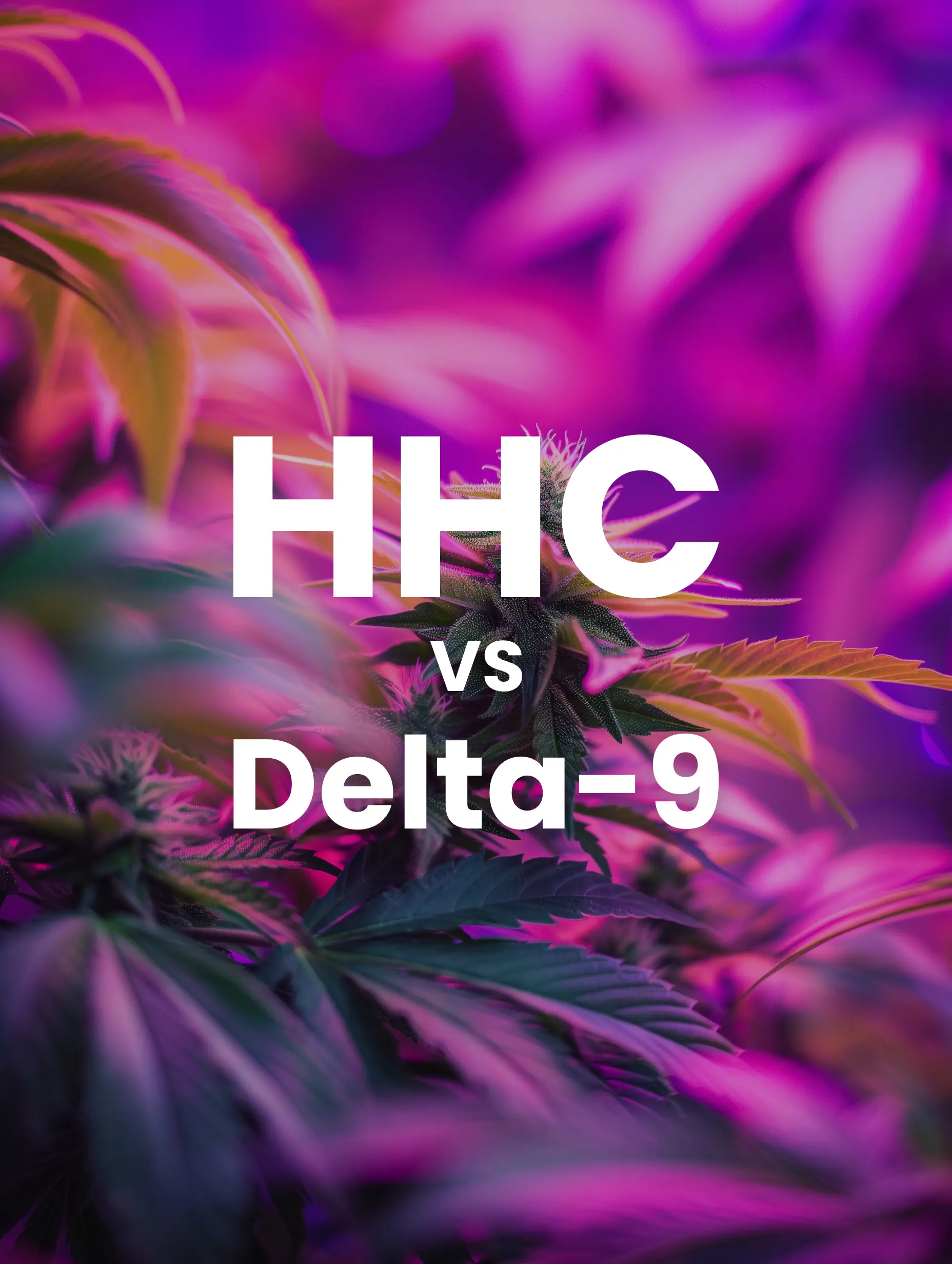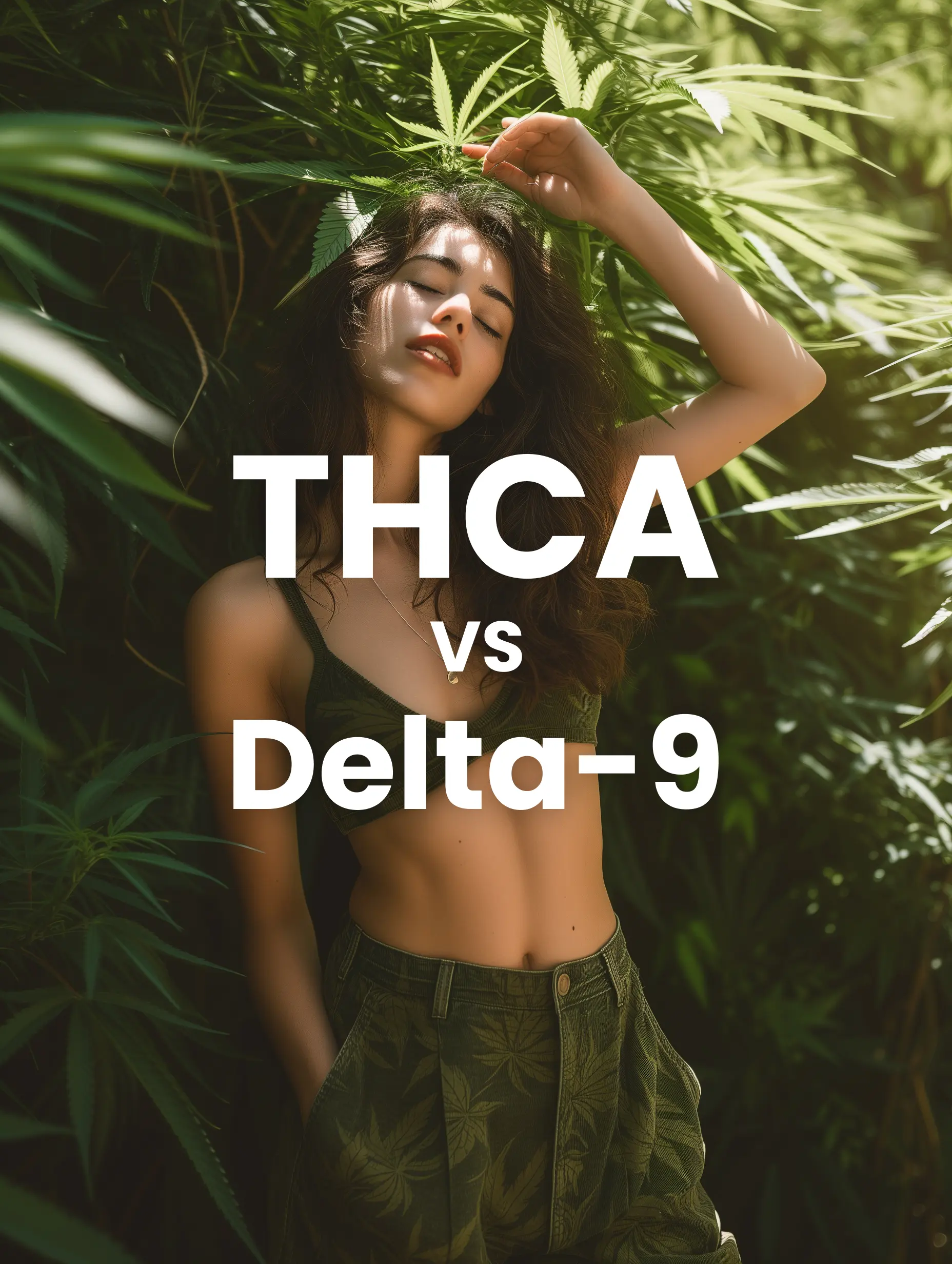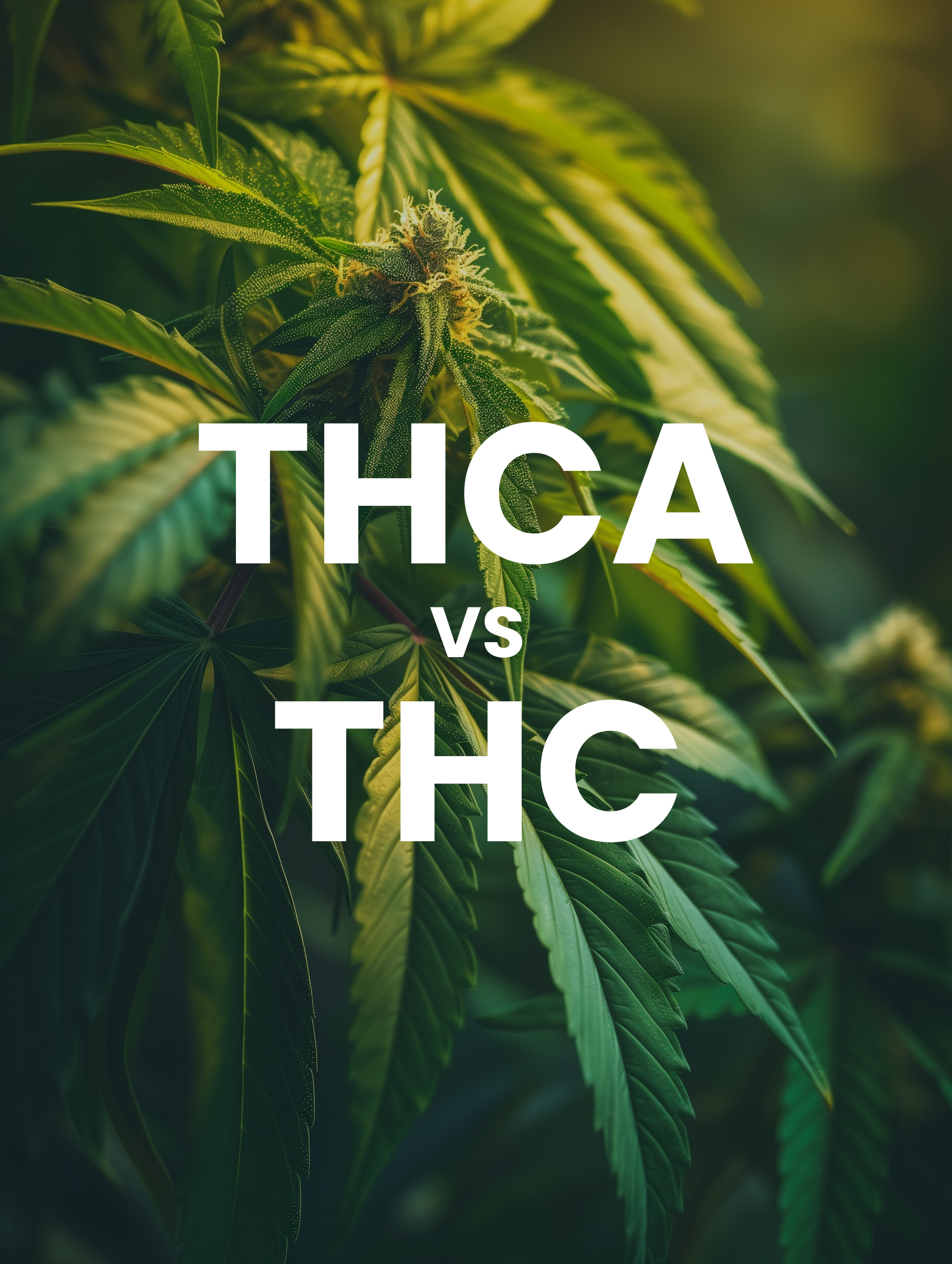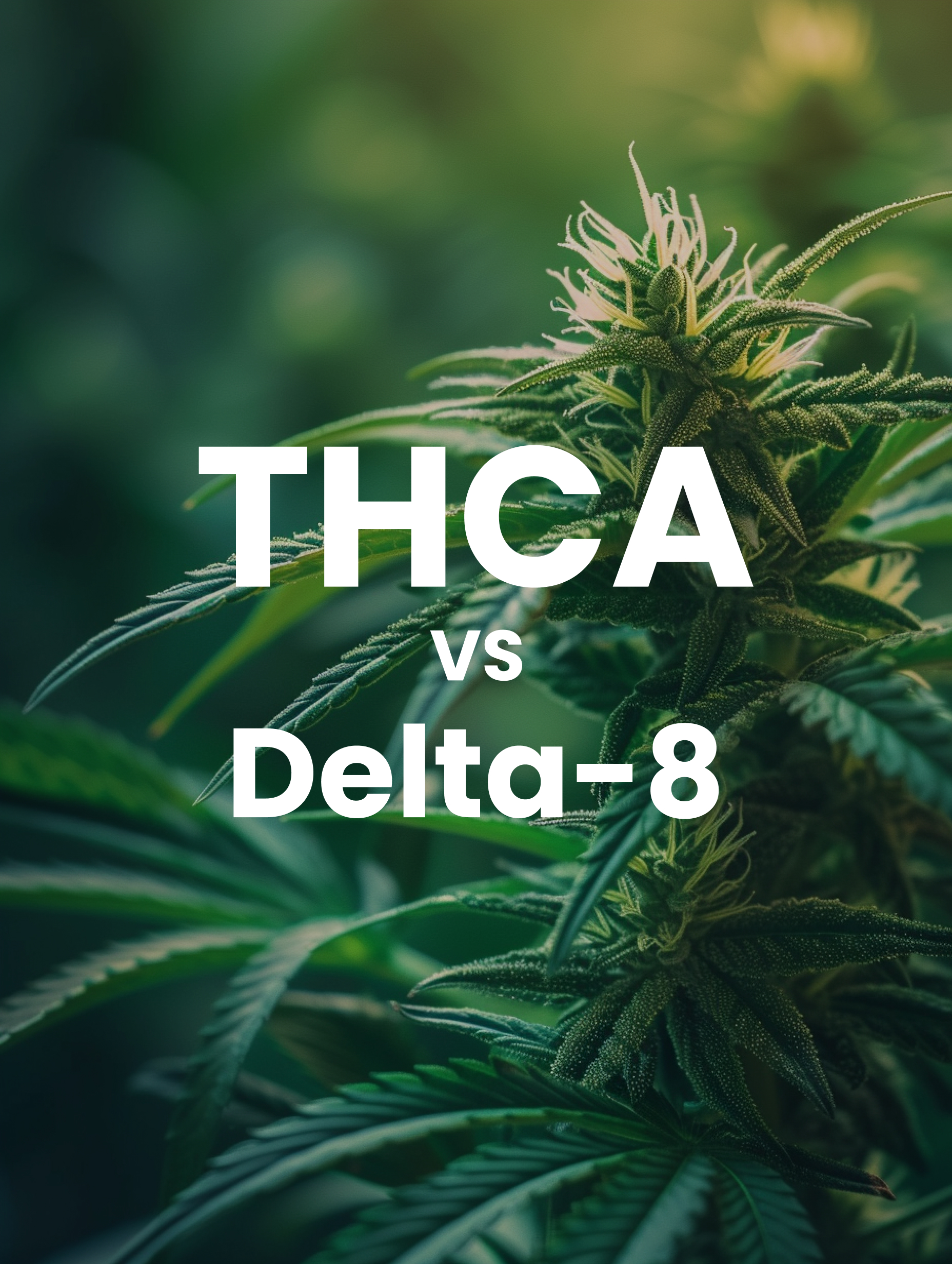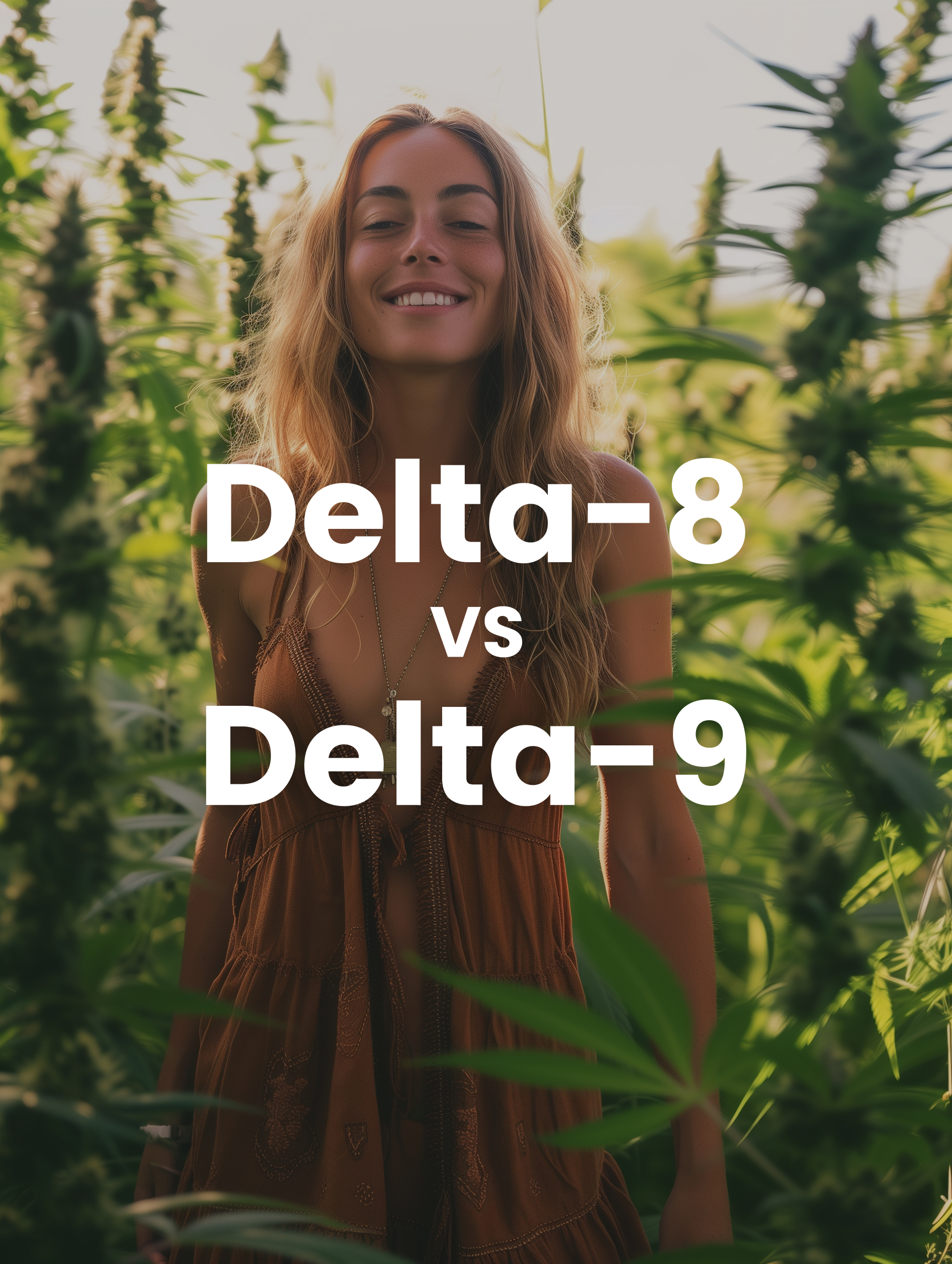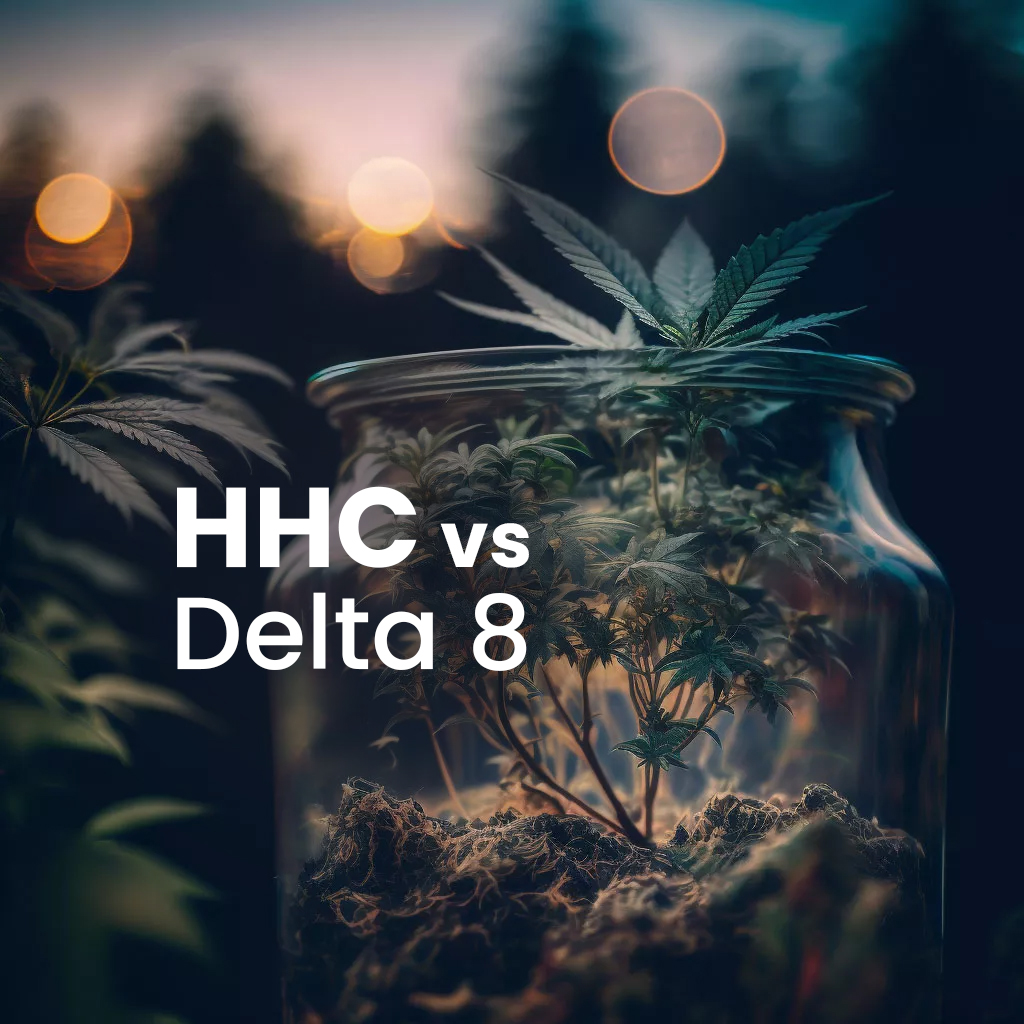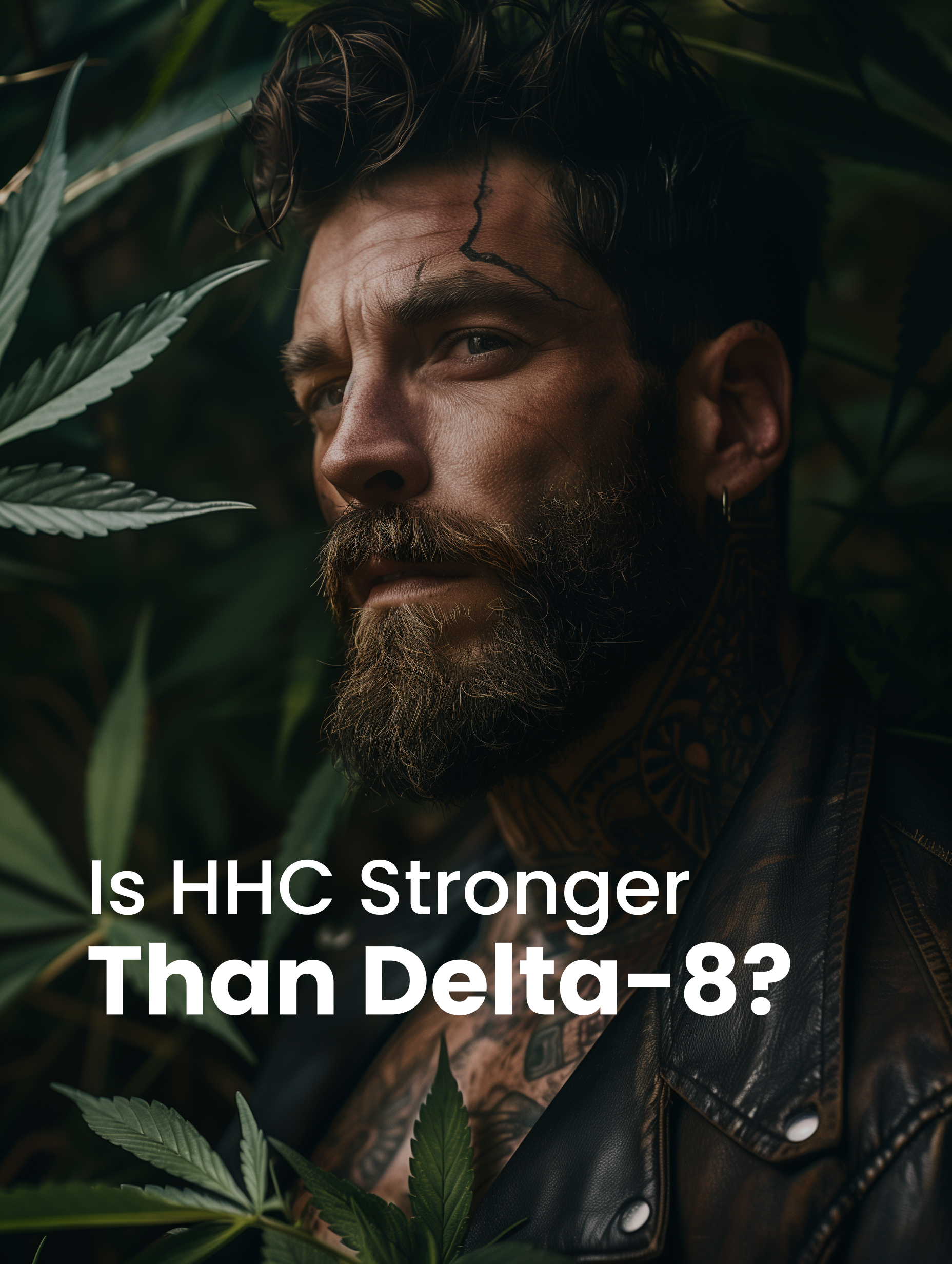THC-O vs Delta 8: An In-Depth Scientific Comparison
The legal cannabinoid market has exploded in recent years with the emergence of new hemp-derived compounds like THC-O and Delta 8 THC. As these novel cannabinoids gain popularity, it’s important for consumers to understand the key differences between them. This allows people to make informed decisions when exploring these compounds for recreational or therapeutic use.
In this guide, we’ll analyze the science behind thc-o and delta-8, from their distinct chemical structures and production methods to the effects they generate. We’ll also explore vital considerations around legality, safety practices, real-world usage, and more.

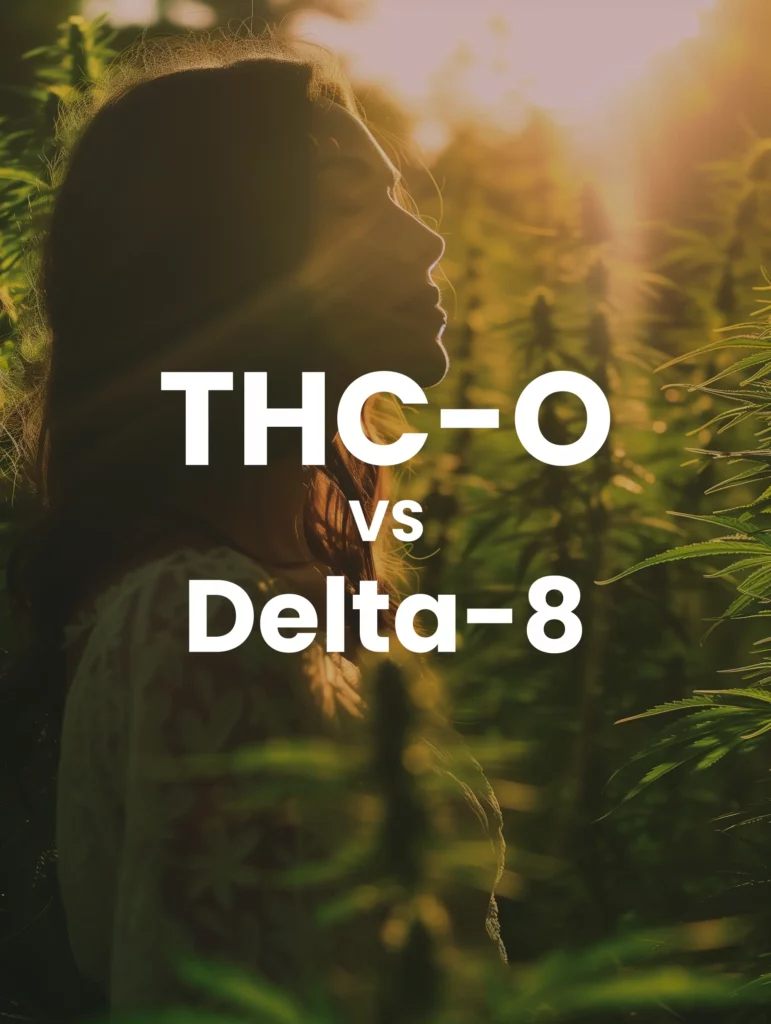
Key Takeaways
- THC-O and Delta 8 are both hemp-derived cannabinoids that can produce psychoactive effects. But THC-O is synthetic cannabinoid whereas delta-8 naturally occurring cannabinoids.
- THC-O is generally much more potent than d8, but potency also depends on the dosage consumed.
- Both thc-o and d8 are federally legal per the 2018 Farm Bill, but some states have imposed bans or restrictions.
- Strict safety practices and lab testing are crucial when producing either cannabinoid to avoid contaminants.
- While anecdotal experiences vary, THC-O is often described as more psychedelic while Delta 8 promotes relaxation.
- Consumers should research state laws, production methods, and potential side effects before using these compounds.
What is THC-O?

Chemical Structure and Synthesis
The full name for THC-O is tetrahydrocannabinol-O-acetate. Unlike Delta 8 THC, THC-O does not occur naturally in significant concentrations. Instead, it is chemically synthesized in a lab from CBD, another hemp compound.
Specifically, this involves converting CBD into d8 THC first using acids, and then acetylating the delta-8 THC with acetic anhydride to produce THC O acetate. The resulting product has a different molecular configuration than THC, which may contribute to its enhanced potency.
Legality and Regulations
THC-O exists in a legal grey area. The 2018 Farm Bill federally legalized derivatives and isomers of hemp containing 0.3% or less Delta 9 THC, the main psychoactive compound in cannabis. But thc-o is chemically synthesized rather than derived directly from the hemp plant.
Its status is therefore unclear under federal law. Many states also have imposed additional restrictions on thco, with some banning it entirely. Consumers should research their local laws before seeking to purchase or use thc-o products.
What is Delta 8?

Chemical Structure and Natural Occurrence
Unlike THC-O, Delta 8 THC is a naturally occurring compound found in small concentrations in both hemp and cannabis plants. This is a type of THC that has the same formula but a different arrangement of chemical bonds.
D8’s molecular bond configuration results in psychoactive effects around two-thirds as strong as Delta9 THC. But since D8 exists only in minuscule amounts in hemp, concentrated Delta-8 products are typically synthesized chemically from CBD.
Legality and Regulations
D8 exists in a complex legal status landscape. Because it occurs naturally in cannabis and hemp plants, it falls under the definition of legal hemp derivatives per the 2018 Farm Bill when below 0.3% Delta 9 THC.
However, some states have specifically banned or restricted d8 products. And the DEA maintains Delta 8 as an illegal controlled substance federally, conflicting with the Farm Bill. Consumers must research their state and local laws carefully before purchasing Delta8.
Comparing Effects and Potency

When ingested, both THC O and Delta 8 interact with the body’s endocannabinoid system, leading to various effects. But the specific effects produced differ significantly based on the unique chemical structures and potencies of these cannabinoids.
Research indicates THC-O can be up to 4 times more potent than traditional Delta 9 THC. Anecdotal reports suggest THCO triggers more intense psychoactive effects, including perceptual changes and deep introspection.
In contrast, users generally describe Delta-8 as less potent, delivering a more clear-headed and relaxing high similar to, but milder than Delta-9 THC. However, variables like dosage impact the effects experienced.
While additional study is still needed, these cannabinoids appear to exhibit distinct potency and effect profiles based on their unique molecular configurations.
Safety and Production Standards
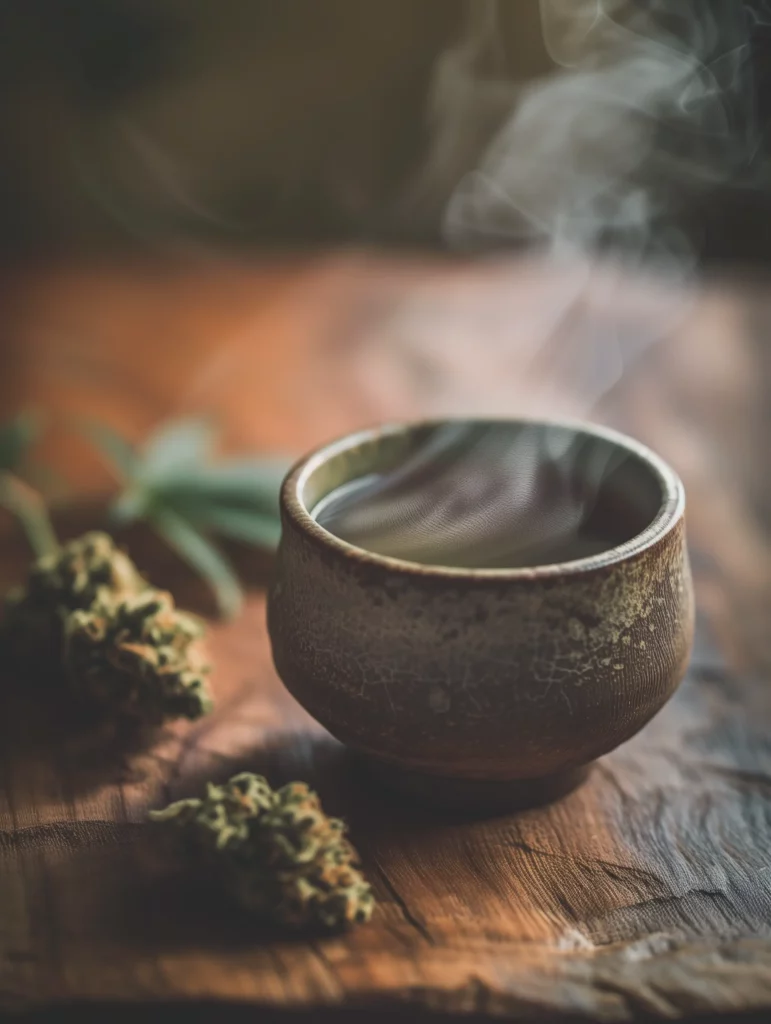
As unregulated synthetic compounds, the production methods and safety profiles for thc-o and Delta 8 warrant examination. Both are made with chemical solvents and reagents, demanding proper techniques and laboratory conditions to avoid contamination. However, fly-by-night operators lacking oversight may cut corners, producing potentially unsafe products.
Seeking out brands that voluntarily follow cGMP standards and provide third-party lab testing for solvents, heavy metals and potency can help identify higher quality thc o and delta-8 products. But lack of mandatory testing requirements remains an issue in this unregulated market. Furthermore, long-term health effects of consuming these compounds have not been established.
Usage and Consumer Experiences
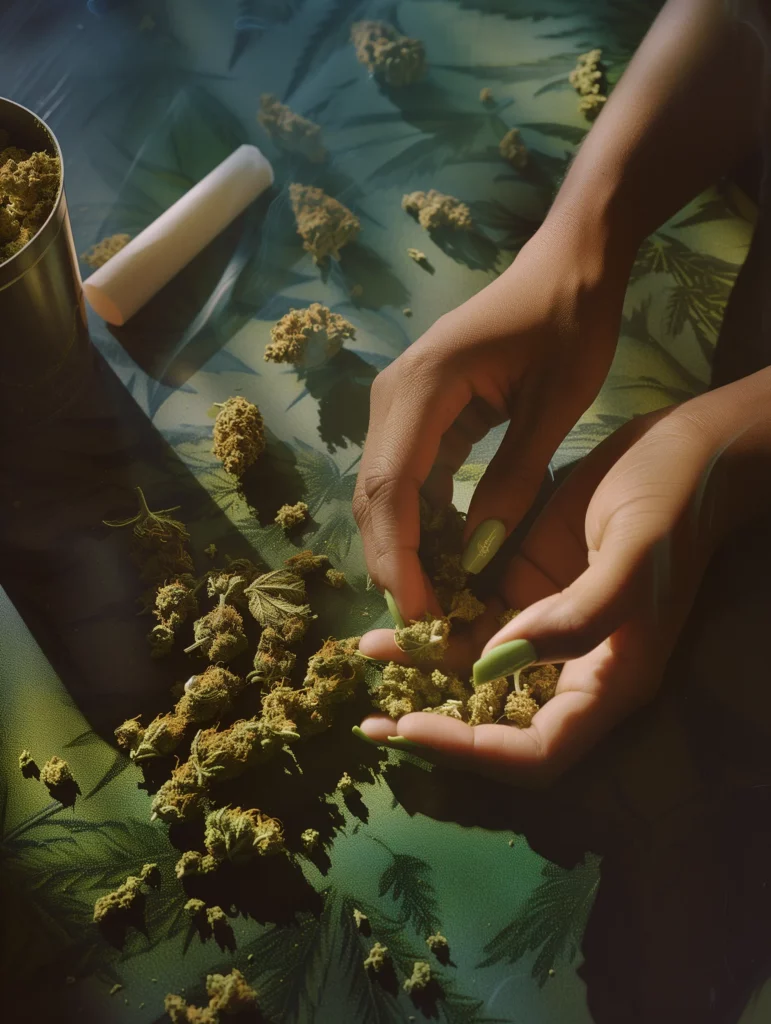
THC-O and D8 are consumed in similar ways to traditional cannabis products. Common forms include vape cartridges, tinctures/oils, edibles, dried flower, and concentrates.
User reports indicate THC O provides a stronger high with greater psychoactivity, including sensory changes and time distortion. Some describe spiritual-like mental states. Delta 8 delivers milder euphoria with relaxation.
Dosage is key for both compounds. Excess THC-O can prompt anxiety, panic attacks or even hallucinations in those sensitive to THC. With Delta 8’s calmer effects, higher doses are often better tolerated, but individual response varies. Starting low and increasing slowly while assessing effects is advisable.
Legal Considerations and Market Trends

THC-O and Delta 8 exist in a precarious legal gray area. Federally, THCO’s murky status limits its market, but Delta 8’s boom in popularity has faced regulatory threats. Numerous states have banned Delta-8, while others have allowed it. This patchwork of laws creates compliance challenges and consumer confusion.
Any federal crackdown could chill the derived from the hemp plant cannabinoid market. But passage of cannabis-friendly laws could also expand access. Currently D8 retains an advantage over THC O in both legality and consumer familiarity. However, shifting regulations may reshape the market landscape for these compounds and their close alternatives.
Final thoughts
As the hemp-derived cannabinoid market expands, THC O and d8 offer distinct options for consumers seeking the benefits of THC. While they share similarities, key differences exist in potency, effects, legality and safety considerations.
THC-O provides intense psychoactivity, while Delta 8 is milder but faces fewer legal hurdles currently. Examining these compounds from a scientific lens provides insights for consumers to weigh their choices and preferences. Careful research and caution are advised when exploring these unregulated products as therapeutic benefits or recreational alternatives to traditional cannabis.
Frequently Asked Questions
Is THC-O legally in united states distinct from Delta 8?
Yes, THC-O faces more legal uncertainty than Delta 8 since it is synthetically produced rather than naturally derived like Delta 8. The DEA is more likely to consider thc-o an illegal controlled substance.
What are the primary effects of THCO compared to Delta-8?
THC-O is described as producing intensely potent psychoactive effects even stronger than traditional THC, including sensory changes. Delta 8 has milder euphoric effects that provide relaxation with less mental fogginess.
How does the production of THC-O and D8 differ?
While both involve chemical processing, D8 is derived from naturally occurring CBD, whereas thc-o is synthesized from THC using additional reagents like acetic anhydride in more complex chemical reactions.
What should consumers know about the safety of THC O and Delta8 products?
Lack of regulation means caution is advised. Seeking reputable brands that follow cGMP standards and provide third-party testing helps identify higher quality THC-O and d8 products without contaminants.
The statements on this blog are not intended to diagnose, cure, treat or prevent any disease. FDA has not evaluated statements contained within the blog. Information on this website or in any materials or communications from Inheal is for educational/informational purposes only and is not a substitute for medical advice, diagnosis, or treatment. Please consult your healthcare provider before making any healthcare decisions, correct dosage or for guidance about a specific medical condition.

A connoisseur of cannabis creativity and true contemplation with more than 20 years of experience, Chris extracts deep thoughts from getting lightly baked and shares his wandering mind. He blends cuisine and cannabis culture into nutritious, delicious recipes and insights for other hemp lovers.
Related Posts

HHC vs Delta 9

THCA vs Delta 9

THCA vs THC: What’s the Difference?

THCA vs Delta 8: Differences and Similarities

Delta 8 vs Delta 9: Which One Truly Reigns Supreme?

Comparing HHC vs Delta 8: Which is Right for Me? – Inheal

Is HHC Legal in Your State? Everything You Need To Know

Is HHC Stronger Than Delta 8

Does Delta 8 Show Up on a Drug Test? Surprising Answer Inside!
All Posts


